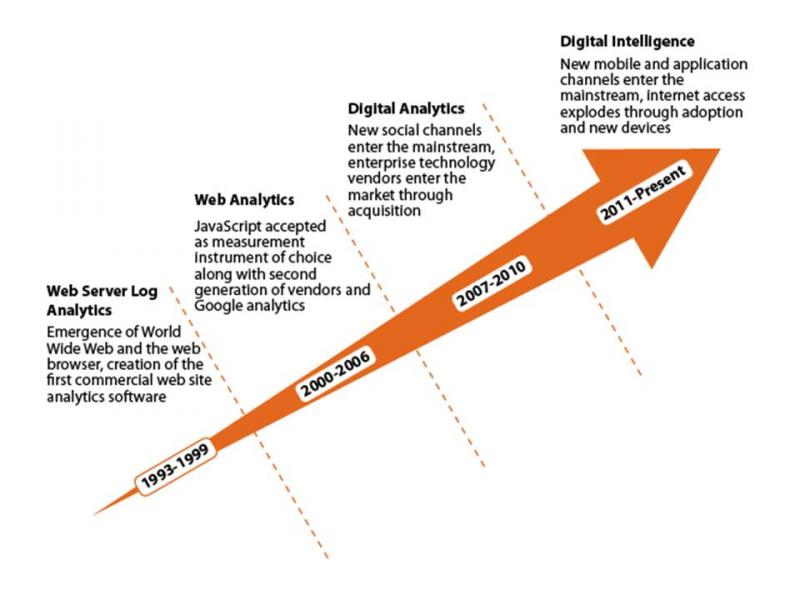Welcome To The Era Of Digital Intelligence
I’m excited to announce the recent publication of Welcome To The Era Of Digital Intelligence. This idea has been brewing for a long time, and it shouldn’t surprise anybody who follows interactive marketing or web analytics. The macro marketing environment has changed – and continues to rapidly evolve – to accommodate new touchpoints, sophisticated consumers, and highly coordinated multichannel customer experiences. And as the remit of marketing expands, so too must that of marketing analytics.
It’s clear that traditional analytics approaches were not designed or intended to handle the breadth of channels, devices, volume, and speed that fuel today’s digital interactions. The endemic symptoms of these gaps are plain for anyone to see: the proliferation of analysis tools, the explosion of data warehousing projects, and the struggle to translate analytics into actionable insights. It is abundantly clear that we need to take a step back and re-imagine an analytics framework that adequately supports modern digital marketing.
Forrester calls this updated approach to marketing analytics “digital intelligence,” defined as:
The capture, management, and analysis of data to provide a holistic view of the digital customer experience that drives the measurement, optimization, and execution of marketing tactics and business strategies.
Digital intelligence comprises six “layers”:
- Digital data inputs – incorporating data from all digital marketing touchpoints
- Business data inputs – putting digital marketing data into context with data from the business
- Data processing – collecting, integrating, and managing data with a high degree of speed and granularity
- Data warehouse – storing digital data to make it available for analysis and execution
- Analysis – analytics activities spanning dashboards and reports to data mining and forecasting
- Action – making analytical data and insights directly available to the applications that drive interactions
I can hear you asking, “Does web analytics have a place in digital intelligence? Does the website still matter?” Absolutely! Web analytics and the website are arguably more important than ever. But they are part of a much larger digital world, and we need to put all of those components on equal footing. Digital intelligence is a framework that covers the breadth of data, analysis techniques, and delivery of insights to support decision making in the complex digital environment in which we operate. Digital intelligence is the next natural evolutionary stage in web analytics, building on our hard-won experience and capabilities while putting us into position to succeed in the future.

This research is only the beginning of the digital intelligence journey. Digital intelligence is an idea, and now the real work begins. I will continue to explore the topic through my research, particularly the processes, organizations, and technologies that firms will utilize to deliver on the promise of digital intelligence.
